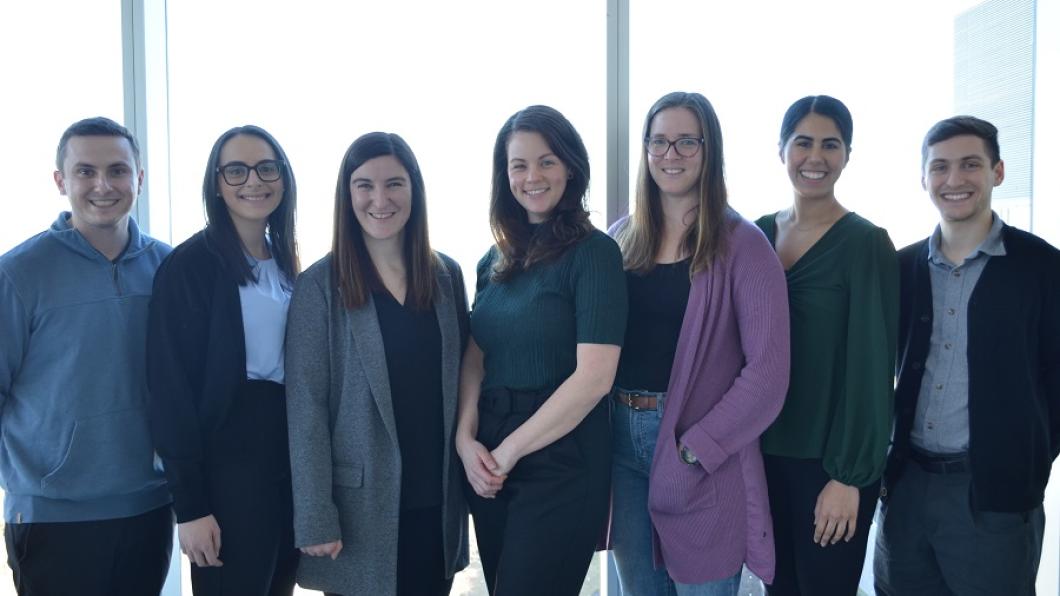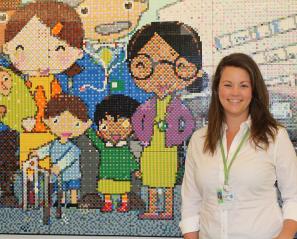
Clinician scientist and clinical neuropsychologist promoted to associate professor at University of Toronto's Temerty Faculty of Medicine
Dr. Shannon Scratch has been promoted to associate professor at the University of Toronto’s Division of Developmental Paediatrics within the Temerty Faculty of Medicine. She also holds the Holland Family Professorship in Acquired Brain Injury.
Over the last few years, Dr. Shannon’s NOvEL lab team have focused their research efforts on developing new treatment approaches and pathways for people who have experienced concussion or acquired brain injury (ABI) that don’t always have access to care or are often overlooked in the health-care system. These include resources for educators to better support kids who experienced ABI return to school and a virtual group intervention for youth with concussion to feel connected to peers with similar experiences and engage in active rehabilitation.
In between leading her research at the NOvEL lab and providing care to clients in the persistent concussion clinic at the hospital, Dr. Scratch shares what this new academic promotion means to her and mentoring the next generation of trainees in pediatric disability research.
Congratulations Dr. Scratch on your academic promotion. What does this promotion mean to you?
I think it's an acknowledgement of all the amazing and hard work that the entire lab has done. I'm lucky to work with really brilliant staff and trainees who choose to learn at Holland Bloorview and through the University of Toronto.
Can you speak to the passion you have in teaching and nurturing the next generation of pediatric researchers and clinicians?
What I like most about my job is getting to spend time with creative, hardworking trainees who want to learn about rehabilitation sciences. The trainees have helped me grow as a scientist as well. They ask really thoughtful questions that have led to our projects moving in new directions. We’re a truly interdisciplinary team and support each other.
If you can go back in time, what advice would you give yourself as a student?
I think it’s a question of fit and trust. You want to trust who you’re learning from and the way they do their work. If you have a good approach [to research] and a supportive environment, you’re going to learn and hopefully have a great time doing it.
Is there anything else you’d like to add?
I’d like to thank my lab as well as all the other scientists in the BRI. I’ve been given the flexibility to be creative in my work as a scientist. I’m excited about how we are bringing questions from families and from clinic back to the lab and have such a practical view of what research can and should be.
I’m excited for what the next stage will be for us at NOvEL and the BRI!

Dr. Shannon Scratch awarded Holland Family Professorship in Acquired Brain Injury